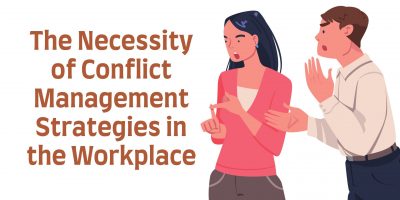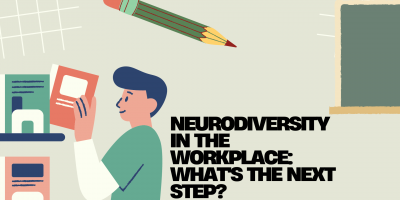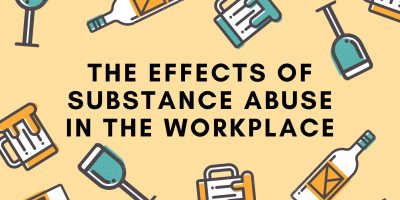
Tools & Strategies for ADHD in the Workplace
To say that ADHD in the workplace is intricate would be an understatement. Explore what ADHD means for all involved parties and the best tools and strategies for ADHD in the workplace.


CEO & Founder of Purple Fire

Co-owner and Content Manager at Damien McEvoy Plumbing

Managing Attorney at Douglas R. Beam, P.A.

Director at Emerald Home Improvements

Marketing & Development Director at Muscle Lead

VP Business Development at Lone Wolf Paintball

Career Guide & Content Editor at Resume Genius

Attorney & Co-Owner at KFB Law

Optometrist at True Eye Experts

CEO & Editor-in-Chief of Venture Smarter

Reiki Practitioner

CEO & Co-Founder of Serviap Global
Some days, the thought of going to work may seem like too much to bear. Dealing with clients, meetings, and deadlines is not what most people would describe as a good time.
While this somewhat universal feeling is entirely normal, unfortunately, it has become a recurring concern in today’s fast-paced and demanding workplace.
Investing time and energy into ambitious career goals and striving for better-paying roles often comes with extra stress since this usually requires more responsibility.
Some might argue that the rewards and benefits of such positions outweigh the negative aspects. However the side effects on the physical and mental health should not be overlooked.
This inevitably raises a debate on whether the most stressful jobs are worth it.
“Striving for more significant challenges and responsibilities in the workplace inevitably leads to stress, which could either be positive or negative,” explains CEO & Founder of PurpleFire, Daniel Chabert.
“Some people thrive under pressure and perform better when in a challenging environment, while others buckle under the same circumstances,” says Chabert.
To weigh in on the debate and gain a better perspective, let’s delve into the nature of work-related stress and its effect on health by exploring the most stressful jobs across different industries and analyzing the common causes.
Six of ten Americans consider their work stressful, according to a survey by the American Psychological Association. Or, for 61% of the respondents, the workplace was a significant stress source, following the nation’s future as the leading stressor with 63% and money with 62%.
To identify what makes a job stressful, let’s first review the concept and what it represents.
Work-related stress refers to the physical, emotional, and mental strain experienced by individuals in response to excessive pressures and demands in the workplace. This eventually becomes a chronic condition when it continuously happens without being addressed.
“Chronic stress can seriously affect your health and well-being, even though some stress is necessary for growth and development,” says Matt Little, Co-owner and Content Manager at Damien McEvoy Plumbing.” As a result, it’s critical to identify and address the root cause of your stress,” concludes Little.
But identifying what makes a job stressful is complex since it depends on many elements, from the industry and the employer to the workplace culture and the employee’s expectations.
Factors such as long working hours, job insecurity, toxic culture, and blurred boundaries between personal and professional lives are all potential contributors.
Another major reason has to do with money.
Usually, challenging jobs result in higher income.
At the same time, a low salary also contributes to feeling anxious, increasing financial stress. In fact, one LinkedIn study reveals that 38% of those making between $51,000-to-$71,000 a year were stressed, compared to 47% of people earning between $35,000-to-$50,000 and 68% making more than $200,000+ annually.
Detecting the cause is vital in understanding how to approach a stressful or toxic work environment.
“If your job puts a lot of stress on you and lowers your quality of life, you might want to consider other jobs,” explains Little.
”Ultimately, you should carefully weigh the advantages and disadvantages of staying in a stressful job, including how it will affect your physical and emotional health.”
Now that we briefly covered work-related stress, let us explore what leads to some of the most stressful jobs across various industries. These often involve high-pressure environments, demanding deadlines, and significant responsibility.
Some examples of more demanding occupations include air traffic controllers, firefighters, military personnel, police officers, journalists, etc. Plus, most of these fit the money criteria, as they are better paid than other jobs.
The roles require individuals to make split-second decisions, work in hazardous conditions, and handle emotionally charged situations regularly.
However, this is not to say that other jobs aren’t stressful.
Ultimately, every industry, occupation, and workplace comes with its own set of challenges. So, before answering what the most stressful jobs are, let’s review these factors in more detail.

Every industry carries a different amount of responsibility and has unique challenges and advantages.
For example, although choosing the medical field can be fulfilling and well-paid, research by the British Medical Association reveals that the pressure on NHS workers is at its highest in its 70-year history.
As a result, these medical professionals suffer from stress, fatigue, and burnout.
Moreover, UK’s National Education Union discovered that more than a third of teachers feel stressed at least 80% of the time, making education another high-stress industry.
Somewhat surprisingly, LinkedIn’s Workforce Confidence Index puts art on the top of the list of high-stress industries at 84%, followed by healthcare (75%) and education (73%).
However, if we examine the vast amount of research on the topic, we’ll see that stress ranges across most industries, from the military to hospitality.
Ultimately, the goal is to recognize the stress factors unique to the industry or job and implement strategies to reduce their effect on the person’s health and the organization’s well-being.
Job insecurities, employee conflict, lack of work-life balance, and toxic environments are common stressors across all industries.
However, the pressure to make split-second decisions to save a life or the responsibility of shaping well-educated youth is not.
While the unique stressors can further vary based on the nature of the work, they can be mutual for different occupations, including:
Aside from the unique factors contributing to work-pressure, universal stressors are equally important when weighing in on the debate.
Namely, the American Institute of Stress reveals that 62% of US adults experience high levels of stress that result in extreme fatigue or feeling out of control.
The main reasons for this, according to the report, are:
Generally, a toxic work culture characterized by excessive competition, lack of support, and poor management contributes significantly.
The rise of workaholism, where individuals feel compelled to work and sacrifice personal time constantly, further exacerbates work-related stress.
The hustle culture of the last decade is still seen as the bedrock of success, portraying an ideal where one’s worth is measured by constant busyness. However, the detrimental effects of the relentless pursuit of career advancement have, in a way, paved the way for new trends like “quiet quitting.”
This, in turn, provoked the wave of “quiet hiring” in 2023, a year marked by layoffs, when the remaining employees got stuck with the responsibilities of their ex-colleagues.
In this circle of workplace trends, the only currency employees seem hesitant to barter with is workplace stress.
For industries such as healthcare, emergency services, finance, and journalism, which are often more stress-prone due to their work, the result is a skewed work-life balance.

Stress is the silent killer of productivity, and its effects are significant and far-reaching.
Statistics show that 41% of workers were less productive, 33% were less engaged, and 15% admitted to looking for a new job because of stress. It also causes a 50% increase in voluntary resignations.
Working under pressure makes employees prone to mistakes, reducing their performance and leading to burnout.
What’s even more concerning is that when that “fight or flight” response repeatedly occurs, it affects a person’s mental and physical well-being, causing many illnesses.According to the American Psychological Association, chronic stress is associated with an increased risk of heart disease, a lower immune system, depression, and more.
Intriguingly, at the same time, it can also boost productivity.
Many argue that not all stress is bad since it can also be brief and motivate performance. Some workers thrive under pressure and use stressful situations to fuel their productivity.
“When your job is important, stress is bound to be a part of it,” says Riley Beam, Managing Attorney at Douglas R. Beam, P.A.
“In the legal industry, we are often reminded to consciously avoid the emotional stress of fighting a case for our clients. After all, emotions may hinder our ability to handle case details in a practical manner.
Nevertheless, stress does get to us, especially when we also have to endure physical exhaustion due to long working hours.
At the end of the day, however, when we realize the responsibilities, we carry and understand how we’re the only ones who can fight on behalf of our clients, we teach ourselves how to use this stress as fuel. Instead of shying away from our duties, we reiterate our commitment and keep going.
So, yes, although stress is an inevitable part of certain job profiles, it is worth it when the outcome can change lives,” explains Beam.
But how can stress be both good and bad?
Ultimately, there are two sides to every coin, and occupational pressure can, in fact, be perceived as a positive and negative experience in the workplace.
“When the results are great, a little stress is all right,” says Director at Emerald Home Improvements, Neil Platt.
Platt explains: “At work, there are times when we have to take on a fair bit of stress so that the results match our vision. So as far as the stress levels are manageable, we can always put these episodes behind us when we witness great results.”
In fact, there is a term for that.
APA Dictionary of Psychology defines good stress as “eustress.”
It refers to a positive response that results from challenging but enjoyable situations. For example, a surgeon’s job is gratifying and creates a sense of fulfillment. Therefore, the pressure that comes with the workplace can be temporary, boosting performance and growth.
“Stress is inevitable in certain circumstances, and transforming this stress into positive energy is something we all learn as we go along,” agrees Wasim Kagzi, Director of Marketing and Development at MuscleLead.
However, he further says, “When you cannot do this anymore, it’s time to pause and review the situation.”
“Every task we take on brings a certain amount of stress. The physical or mental exertion, the unforeseen challenges, and even the fear of the outcome all play a role in adding to this stress factor.
However, we gradually teach ourselves to transform this stress into fuel and use it to do the job well. We get paid for it, too, with our skills and experience adding to that number on our paychecks.
But when the stress with our jobs becomes too much to handle, and when we can no longer transform this stress into positive energy, you must step back and review your position,“ concludes Kagzi.
“Stress should never be a part of any job profile,” opposes VP of Business Development at Lone Wolf Paintball, Tony Angeleri.
Although he acknowledges that work isn’t always easy, Angeleri believes that no matter their responsibilities or position, stress should never be a part of any job profile.
What we get from these opposing opinions is that occupational pressure is perceived differently.
On the one hand, it can serve as a motivating factor, driving individuals to perform better and meet deadlines. However, stress can also have detrimental effects on individuals’ overall well-being.
Its list of adverse effects is a long one.
The American Institute of Stress lists the following:
In the workplace, prolonged exposure to high-stress levels can lead to burnout, a state of chronic exhaustion characterized by physical and emotional depletion. This could result in reduced job satisfaction, decreased motivation, and increased absenteeism. Moreover, stress can negatively impact relationships with colleagues and loved ones, leading to feelings of isolation and detachment.
One idea all experts can agree on is that when stress starts taking over a person’s life, it’s time to move on from that job to a less stressful one and avoid the long-term consequences of chronic stress.
When stress becomes chronic, the long-term consequences can be severe.
Chronic stress occurs when an individual experiences ongoing stress without adequate periods of relaxation and recovery. This sustained pressure takes a toll on the body and mind, leading to a range of health issues.
Physically, chronic stress can manifest as headaches, muscle tension, high blood pressure, and even cardiovascular problems.
Mentally, it can contribute to anxiety disorders, depression, and decreased cognitive function.
The transition from regular stress to chronic stress is often a result of prolonged exposure to demanding work environments and the absence of effective coping mechanisms. Therefore, it’s crucial to recognize the signs and take proactive steps to mitigate its impact before it impacts the person’s well-being.
Despite the immediate positive benefits, at its core, stress is bad.
Unfortunately, this condition has become an inherent part of the modern workplace, affecting employees’ mental well-being and overall productivity. The constant pressure to meet deadlines, the fear of failure, and the need to perform at the highest level can profoundly impact mental health.
According to Career Guide and Content Editor at Resume Genius, Seb Morgan:

Therefore, employers and their employees need to weigh the pros and cons of the most mentally challenging jobs and turn to strategies that can reduce or altogether remove stress.
While high-stress jobs can affect mental health, employers can implement strategies to mitigate the adverse effects.
Encouraging open communication, fostering a supportive work environment, and providing professional growth and development opportunities can help employees cope with stress.
Stress management workshops, promoting physical activity, and incorporating mindfulness practices can significantly reduce stress. Furthermore, recognizing and appreciating employees’ efforts and accomplishments can boost morale and alleviate stress.
Finally, balancing work and personal life is crucial to managing stress effectively.
Is a high-earning job worth it if you don’t have enough free time to enjoy its benefits?
Often, a stressful environment stems from a poor work-life balance, taking a toll on the employees’ well-being and job satisfaction. Long hours, relationship and family conflicts, and poor mental health leading to burnout are just some consequences.
Therefore, it’s crucial to prioritize self-care and set up clear boundaries at work.
Promoting regular breaks, flexible working hours, and encouraging employees to disconnect from work during their downtime can help prevent burnout. Employers can also consider implementing wellness programs that address various aspects of well-being, such as fitness, mental health support, and work-life balance.
However, when this ceases to be enough, workers who endure a lot of stress should seek professional help.
Despite implementing stress management strategies, some employees may require professional assistance to overcome their work challenges.
Chronic stress can become dangerous to the person and the environment without the right tools or a timely approach. For example, the American Addiction Centers make a parallel between stress and substance abuse, reporting that work overload and job insecurity can lead to stress-induced use of substances.
As a result, this could lead to increased absenteeism, loss of productivity, high turnover, workplace accidents, and more.
Encouraging a culture that destigmatizes seeking help and providing access to mental health resources can make a significant difference.
Moreover, professional counseling or therapy can help employees develop effective coping mechanisms, improve emotional well-being, and regain balance.
Finally, investing in Employee Assistance Programs (EAPs) and offering confidential resources can demonstrate an employer’s commitment to supporting their workforce, especially employees with the most mentally challenging jobs.
In healthcare, surgeons experience immense pressure as they make critical decisions during complex procedures that can have life-altering consequences.
Air traffic controllers ensure an aircraft’s safe and efficient movement, often operating in high-stress situations where a single mistake can lead to catastrophic outcomes. Moreover, firefighters and military personnel face physical dangers, high-risk scenarios, and the need to respond swiftly under extreme pressure.
Police officers constantly confront challenging and potentially dangerous situations, which can affect their mental and emotional well-being. At the same time, journalists face tight deadlines, demanding assignments, and the need to report on sensitive and distressing events.
Seb Morgan, however, argues that these are high-pressure jobs rather than high-stress occupations.
“A high-pressure job might be any job with high levels of responsibility and little room for error — surgeons and investment bankers, for example.
Whether a high-pressure job is worth depends on your personality, skills, and experience. Plenty of workers thrive in high-pressure positions.”
Morgan makes a point that the job’s inherent, high-risk nature doesn’t necessarily make it stressful. Therefore, it’s difficult to precisely pinpoint the most stressful jobs since there are many factors unique to each industry.

A recurring peculiarity in the research on this topic is that different studies show different occupations in their top lists.
For example, in 2019, Career Cast released a list of the 20 most stress-prone professions and their stress score. Some of those include:
The list covers jobs across different industries, yet it fails to mention surgeons, paramedics, or air traffic controllers, even though they come with high responsibilities and are typically on the more stressful side. Instead, it includes PR, corporate executives, and taxi drivers in the top 10.
When we look at the Occupational Information Network, or O*NET, which is part of the U.S. Department of Labor, the top five roles are:
This classification was based on accepting criticism and dealing with high-stress situations calmly and effectively.
Finally, U.S. News positions an entirely different occupation as the most stressful job in America on a list that looks somewhat different from the others:
Case in point, all occupations carry a certain amount of stress, and each industry has unique stressors.
If we circle back to Career Cast’s research, the three most stressful positions were also high-paying ones, with average salaries of:
Although not every high-paying job is accompanied with stress, other research and evidence suggest that there is, in fact, a correlation between the two to some degree.
When that’s the case, it raises an important question – is a stressful job worth the money?
“The key with any job is to evaluate if the salary is commensurate with the stress you are dealing with.
Money does not always equal more stress, but it can be a factor depending on how demanding your position is or how competitive the market for certain jobs is.
Depending on what type of position you are evaluating, there may be other aspects of working remotely or flexible hours that might offer more value than just money alone,” says Marcus Fernandez, Attorney & Co-Owner at KFB Law.
For Besty S. Jacob, Optometrist at True Eye Experts, the answer depends on many factors, including the individual’s personal goals and values.
Jacob says from experience, “I have previously had a position with high demands and lots of pressure to produce results. I soon learned that the additional stress was not worth the extra money, as it took a toll on my physical and mental health.”
He then advises: “Before accepting any job offer, you should ask yourself if it is really worth having increased responsibility and added stress in your life. Also, consider what signs may indicate that this particular job may not be worth the money.
These could include:
Other pointers that a high-paying job might not be worth the stress, according to CEO and Editor-in-Chief of Venture Smarter Jon Morgan, are:
Ultimately, the decision falls on the individual.
When people enjoy what they do and feel supported by the environment and the workplace, it’s easy to navigate moderate stress and even turn it into a positive factor. However, when a bad day turns into a bad month or year, looking for a better job is beyond necessary, even at the cost of a lower salary.
After all, making more money at the expense of health and well-being will eventually take its toll.

No two jobs are alike because no two people are.
Therefore, deciding whether the most stressful jobs are worth it lies within the individual, considering their values, career aspirations, and overall well-being.
However, finding a balance that allows for professional growth and fulfillment while prioritizing mental and physical health is crucial.
“While more money may mean more stress, some people may thrive in high-pressure environments. The signs that a job is not worth the money include physical and mental exhaustion, constant negativity, and a lack of work-life balance,” says Eva Lane, Reiki Practitioner at Anxious Relief.
“Ultimately, deciding to have a stressful job depends on what is best for the individual’s well-being and personal goals,” concludes Lane.
By acknowledging and addressing work-related stress causes, employers and employees can work together to create a healthier and more sustainable work environment.
Finally, Victor Anaya, CEO and co-founder of Serviap Global, advises: “Do what makes you happy, what gives you peace, and if your work no longer gives you joy and only causes you problems, it’s time to look for something else.
Fear of change is inevitable, but it is better to take a risk, trust yourself and dare to do or learn new things.”
Content Writer at Shortlister
Browse our curated list of vendors to find the best solution for your needs.
Subscribe to our newsletter for the latest trends, expert tips, and workplace insights!

To say that ADHD in the workplace is intricate would be an understatement. Explore what ADHD means for all involved parties and the best tools and strategies for ADHD in the workplace.

Prevent adverse outcomes by implementing the correct type of conflict management strategies in the workplace.

The conversation on neurodiversity in the workplace is expanding, but significant improvement has yet to be made. What’s the next strategic move for employers to drive progress?

From decreased productivity to poor workplace relationships – gain insights on recognizing, addressing, and mitigating the consequences of substance abuse at work.
Used by most of the top employee benefits consultants in the US, Shortlister is where you can find, research and select HR and benefits vendors for your clients.
Shortlister helps you reach your ideal prospects. Claim your free account to control your message and receive employer, consultant and health plan leads.